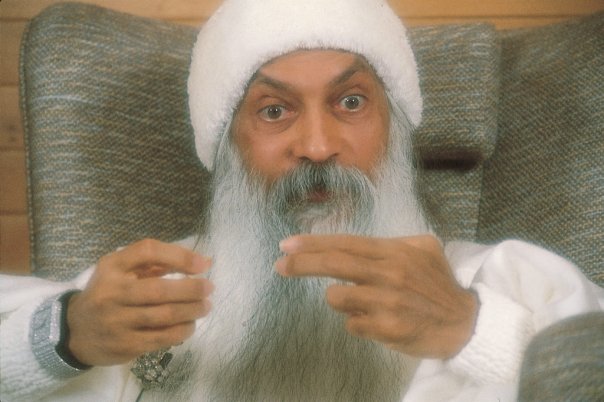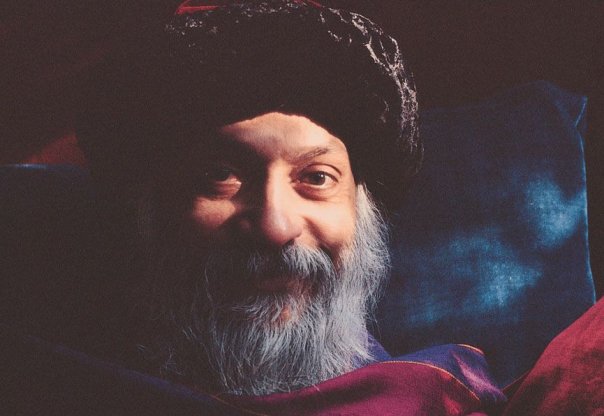Osho Quotes on Clinging
- A real sannyasin cannot claim any ownership. Sannyasin có nghĩa là người đã để lại tất cả tài sản, hoặc tất cả tính sở hữu, sâu hơn và cơ bản hơn. Bạn có thể để lại tài sản, điều đó thật dễ; but to leave possessiveness is difficult because it goes deeper in the mind. You can leave the world, but the mind goes on clinging to it.
- Đừng bám víu vào bất cứ thứ gì. Sự bám víu là nguyên nhân khiến chúng ta không tỉnh táo. Nếu bạn bắt đầu giải phóng một nguồn năng lượng to lớn sẽ xảy ra trong bạn. Và năng lượng tham gia vào việc bám vào mọi thứ sẽ mang đến một bình minh mới cho con người bạn, một ánh sáng mới, một sự hiểu biết mới, một gánh nặng khủng khiếp - không có khả năng xảy ra bất kỳ sự khốn khổ nào, đau đớn, đau khổ.
- Bám vào bất cứ thứ gì, bất cứ điều gì, thể hiện sự không tin tưởng. Nếu bạn yêu một người phụ nữ hay một người đàn ông, và bạn bám vào, điều đó chỉ đơn giản cho thấy rằng bạn không tin tưởng.
- Cling to anything and the mind is back, because clinging is mind. Hold on to anything, depend on anything, and the mind is back, because the mind is dependence, chế độ nô lệ. Possess anything — even a spiritual method, even a method of meditation — become a possessor, and you are possessed by it. Whether you possess money or you possess a tremendously significant method of meditation, nó không quan trọng. Whatsoever you possess, you will be possessed by it and you will be afraid to lose it.
- When you don’t cling to the mind you can use it in a far better, far more efficient way, because the energy that was involved in clinging becomes available. And when you are not continuously in the mind, twenty-four hours a day in the mind, the mind also gets a little time to rest.
- The present is fleeing every moment …what is the point of clinging? Clinging will bring you misery.
- Only this eternal awareness can be the true home, không có gì khác, because everything else is a flux. And we go on clinging to the changing; then we create misery, because it changes and we want it not to change. We are asking for the impossible, and because the impossible cannot happen we fall into misery again and again.
- Tôn giáo, as such, is surrendering, relaxing. Đừng bám víu vào bất cứ thứ gì. Clinging shows that you don’t trust life. Every evening, Mohammed used to distribute whatsoever he had collected in the day. All! Not even a single pai would he save for the tomorrow because he said that the same source that had given today, would give to him tomorrow. If it has happened today, why be untrusting about tomorrow? Why save?
- Nhớ lại: no attachment should grow, no clinging should grow. They are all against your independence, tự do của bạn, Tôi muốn bạn hoàn toàn chắc chắn rằng không có gì sai với bất kỳ ai.
- Một đứa trẻ không có ý thức. Một đứa trẻ sống trong tình trạng vô thức sâu sắc. Bằng cách trở nên có ý thức, bạn đang trở thành người lớn, trưởng thành, vì vậy tất cả những gì đã đeo bám trong vô thức của bạn sẽ biến mất. Giống như bạn mang ánh sáng vào phòng và bóng tối biến mất; mang ý thức sâu trong trái tim bạn.
- The moment you become miserly you are closed to the basic phenomenon of life: expansion, chia sẻ. The moment you start clinging to things, you have missed the target – you have missed. Because things are not the target, bạn, your innermost being, is the target – not a beautiful house, but a beautiful you; not much money, but a rich you; not many things, but an open being, available to millions of things.
- A miser misses tremendously. Because life is for those who share, life is for those who love, life is for those who are not too clinging to things — because then they become available to persons. To cling to a thing is to cling to something which is below you. And if you go on clinging to things which are below you, how can you soar high? It is as if you are clinging to rocks and trying to fly in the sky. Or you are carrying rocks on the head and trying to climb Everest. You have to throw them. You have to throw those rocks. You will have to unburden yourself.
- The heart of knowing is now. Knowledge is always of the past. Knowledge means memory. Knowledge means you have known something, you have experienced something, and you have accumulated your experience. Knowing is of the present. And how can you be in the present if you are clinging too much to knowledge? That is impossible; you will have to drop clinging to knowledge. And knowledge is acquired: knowing is your nature. Knowing is always now — the heart of knowing is now.
- Người ta phải tự phát. Người ta phải sống từng khoảnh khắc, không nghĩ về quá khứ, cũng không nghĩ về tương lai, cũng không bám vào hiện tại.
- Bám vào cái đã biết là bám vào một cái xác. Nó không cần can đảm để từ bỏ sự đeo bám; trong thực tế, nó cần can đảm để tiếp tục bám vào một xác chết. You just have to see… That which is familiar to you, which you have lived — what has it given? Bạn đã đến được đâu? Bạn vẫn còn trống? Có phải không có sự bất mãn lớn, một sự thất vọng sâu sắc và vô nghĩa? Bằng cách nào đó bạn tiếp tục quản lý, che giấu sự thật và tạo ra những lời nói dối để tiếp tục gắn bó, có liên quan.
- One has to be very alert about dropping the method. Once you attain something, immediately drop the method, otherwise your mind will start clinging to the method. It will talk very logically to you, nói, “It is the method that is important.”
- Một điều cơ bản về tự sát là nó chỉ phát sinh ở những người đang bám víu rất nhiều vào cuộc sống.. Và khi họ thất bại trong sự đeo bám của họ, tâm trí chuyển sang cực ngược lại. Chức năng của tâm trí là của một trong hai / hoặc: hoặc nó muốn toàn bộ, hoặc không có. Ham muốn cuộc sống không thể được thực hiện hoàn toàn, bởi vì cuộc sống như vậy là một điều thời gian; nó nhất định phải kết thúc tại một điểm, giống như nó bắt đầu vào một ngày tại một thời điểm. Bạn không thể có một dòng chỉ có phần đầu; ở đâu đó hay nơi khác chắc chắn sẽ có kết thúc.
- Sự thờ ơ trông giống như tách rời, Nhưng nó không phải như vậy; sự thờ ơ chỉ đơn giản là không quan tâm. Detachment is not absence of interest — detachment is absolute interest, quan tâm to lớn, nhưng vẫn có khả năng không bám. Tận hưởng khoảnh khắc khi nó ở đó và khi khoảnh khắc bắt đầu biến mất, vì mọi thứ chắc chắn sẽ biến mất, để nó đi. Đó là sự tách biệt.
- Surrender is the highest form of love, the purest form of love. You will not feel dependent, because there will be no clinging in it. You will not feel dependent, because it is not out of loneliness that you have surrendered. If you have surrendered out of loneliness then it is not surrender at all, then it is something else.
- As time changes, rights change, wrongs change. And you can see it in your own life — every day things are different, and you go on clinging to your fixed ideas. The man who lives with fixed ideas lives a dead life. He is never spontaneous and he is never in a right relationship with the situation that exists. He is never response-able; he functions out of his old conclusions which are no longer relevant, he does not look at the situation itself.
- Make your life an aesthetic experience. And not much is needed to make it an aesthetic experience; just an aesthetic consciousness is needed, a sensitive soul. Become more sensitive, more sensuous, and you will become more spiritual. Priests have almost poisoned your body into a state of death. You are carrying paralyzed bodies and paralyzed minds and paralyzed souls — you are moving on crutches. Throw away all those crutches! Even if you have to fall and crawl on the ground, that is better than clinging to crutches.
- The past has to die. We have to drop our clinging with the past. What does it mean when you say that “I am a Hindu”? It means you cling to a certain past tradition. What do you mean when you say that “I am a Mohammedan”? You cling to something past.



lovely post!!!